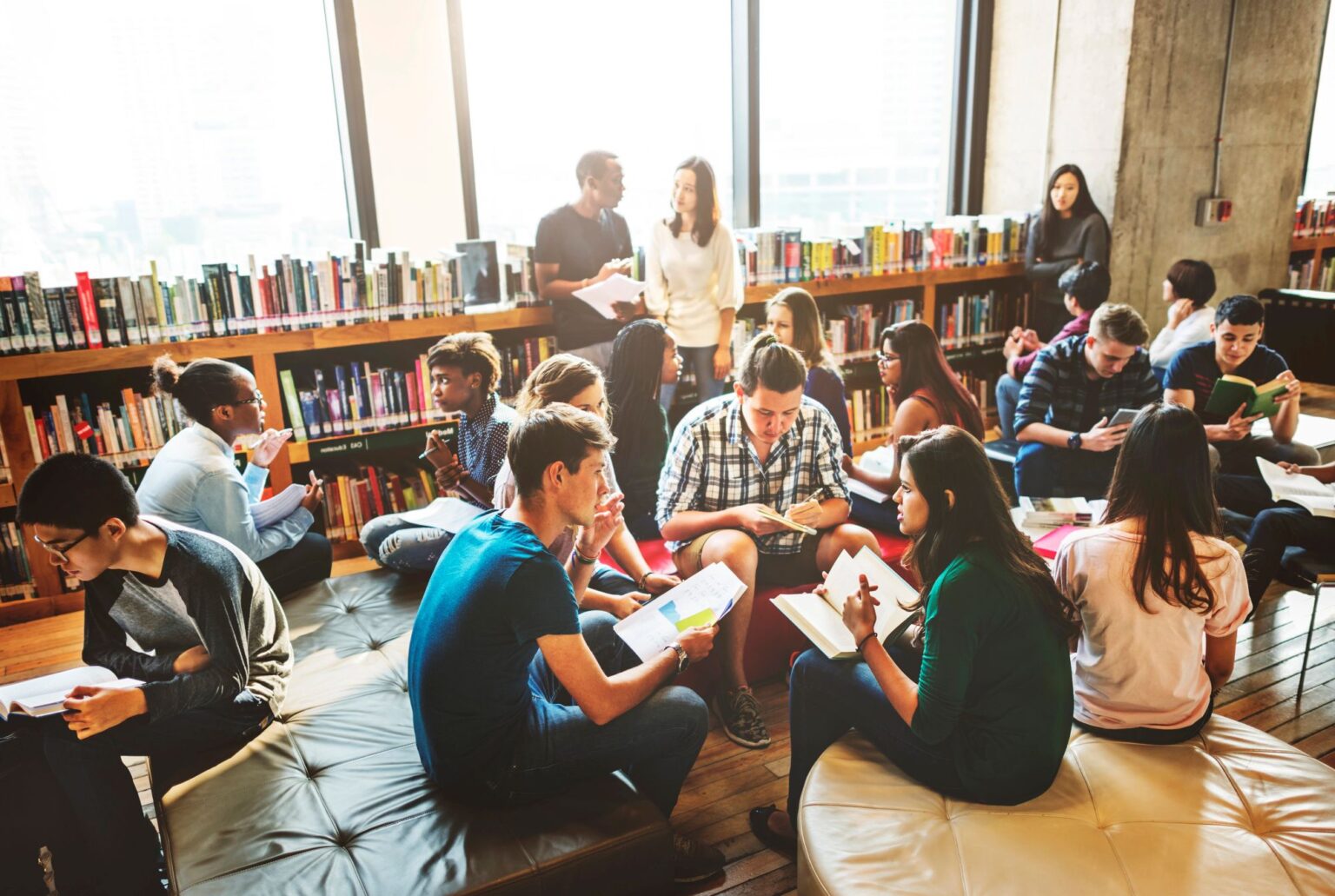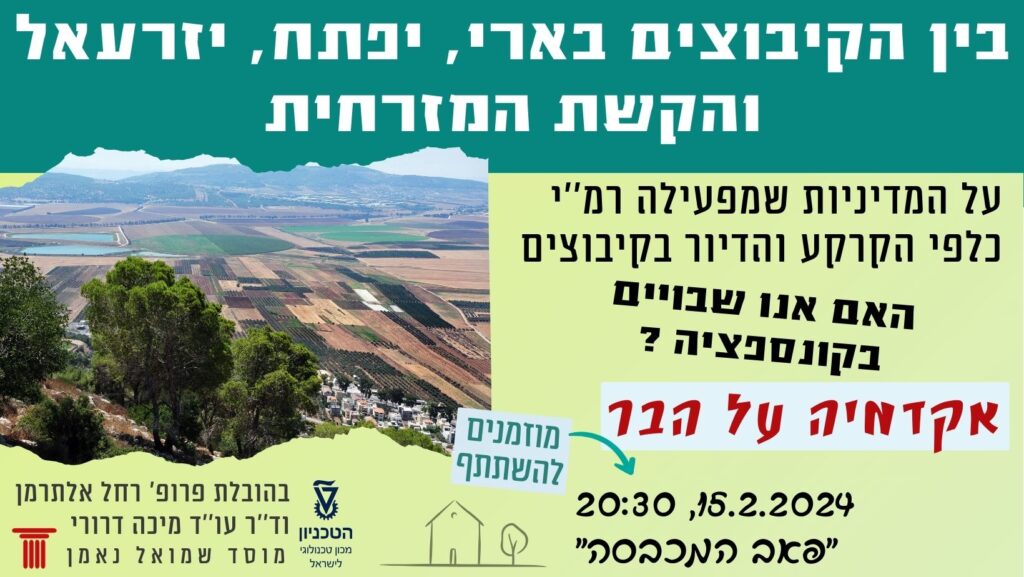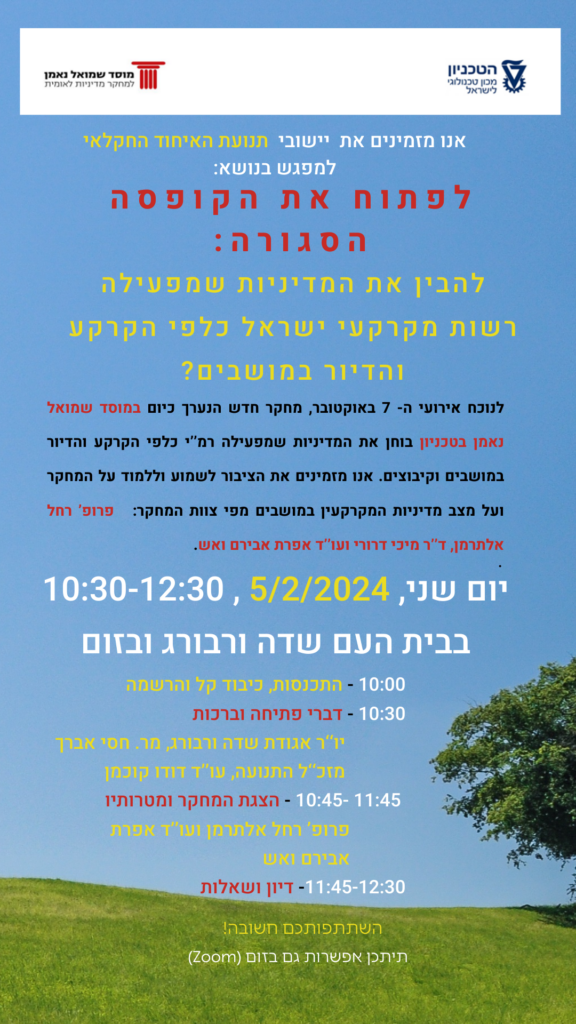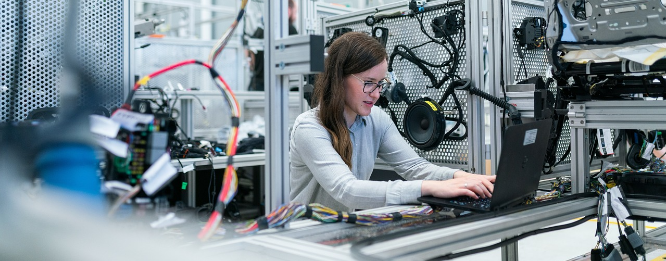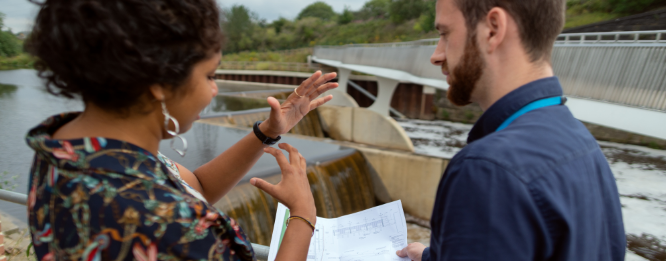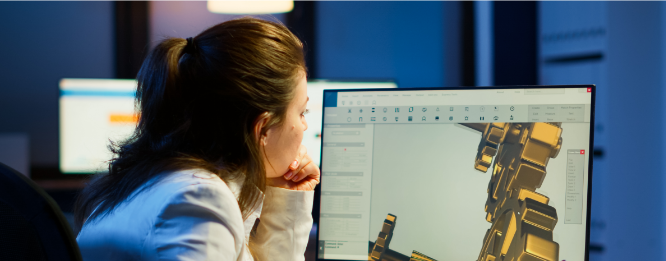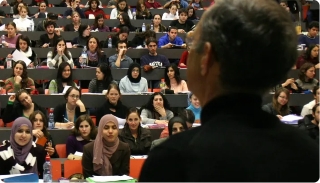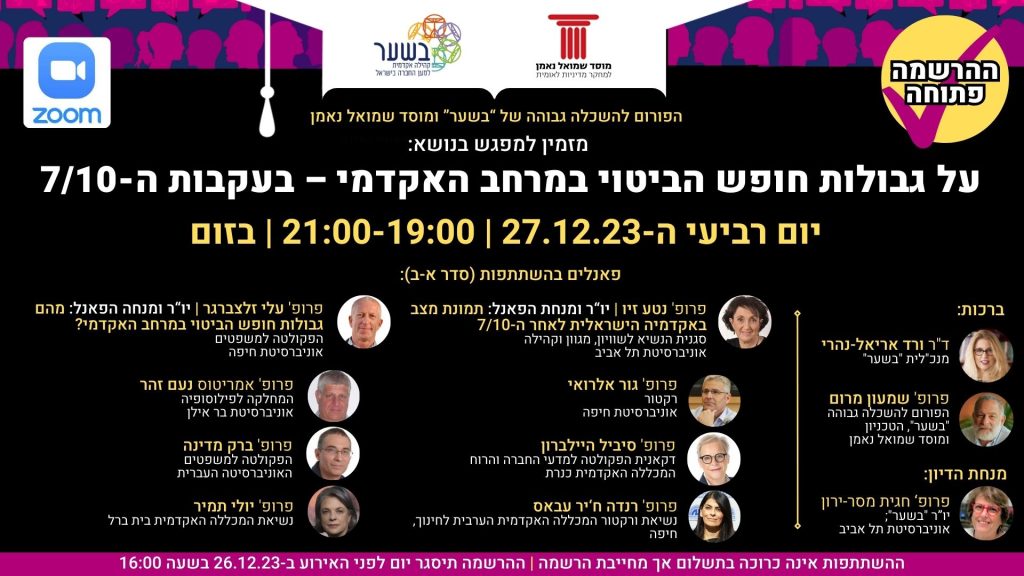New Research Reveals Gaps and Challenges on Multicultural Campuses in Israel
A new study by the Samuel Neaman Institute examined the attitudes, perceptions, and experiences of 1,200 Jewish and Arab students enrolled in heterogeneous academic institutions across Israel. Conducted during the 2023–2024 academic year in collaboration with the Rothschild Foundation, the research highlights the challenges and opportunities of shared academic spaces and emphasizes the impact of campus climate on students’ learning experiences and the promotion of universal values.
Living together on multicultural campus: Student’s Perspectives in Israeli Higher Education Institutions
https://www.neaman.org.il/en/living-together-on-multicultural-campus/
Dr. Nohad Ali, the study’s lead researcher, stated: “The research premise is that students in multicultural academic institutions benefit from opportunities to engage with peers from different cultural backgrounds. Thus, the study’s objectives include mapping students’ attitudes toward coexistence on campuses, identifying barriers to living together, and proposing measures to remove these barriers and foster a multicultural campus that promotes diversity and inclusivity. This involves initiating courses and workshops on cultures, ethnicities, and intercultural relations, as well as encouraging informal interactions to enhance diversity.”
The study’s key themes included:
- Perceptions of Campus Climate:
- Arab students placed high importance on cultural representation and equality within academic institutions.
- Arab students felt less comfortable expressing their culture compared to Jewish students.
- Jewish-Arab Relations:
- While Arab students reported lower satisfaction with Jewish-Arab relations, they felt closer to Jewish peers on campus than outside it.
- Institution Selection:
- Arab and religious students prioritized geographic proximity and national representation.
- Women emphasized proximity and national representation more than men.
- Multiculturalism:
- Arab students gained more intercultural understanding from attending multicultural institutions.
- Arab students highlighted the need for increased Arabic signage and greater representation of Arab faculty.
- Experiences of Racism and Discrimination:
- Arab students reported higher rates of exposure to racist remarks and discriminatory behavior from academic and administrative staff.
- Attitudes Toward Arab Integration in Society:
- Jewish students expressed stronger support for Arab integration in shared spaces and government roles.
Research Recommendations
The study offers several steps to improve the multicultural climate in higher education institutions:
- Developing courses and workshops to foster tolerance and improve intercultural interaction.
- Enhancing responses to national tensions on campus.
- Investing in students’ ability to navigate multicultural environments.
- Adapting academic schedules to accommodate Arab holidays.
- Providing greater support for Arab students at the start of their academic journey.
- Strengthening external enforcement and improving responses to cases of discrimination and racism on campus.
The study emphasizes the urgent need for a comprehensive institutional policy that integrates equality, inclusion, and tolerance. These findings open the door to a broader discussion on the impact of multiculturalism in academic institutions and ways to promote civic partnership in Israel.
###
About the Samuel Neaman Institute
The Samuel Neaman Institute is a national public policy research think tank focused on harnessing higher education, science, engineering and technology for the prosperity and resilience of society and state.

